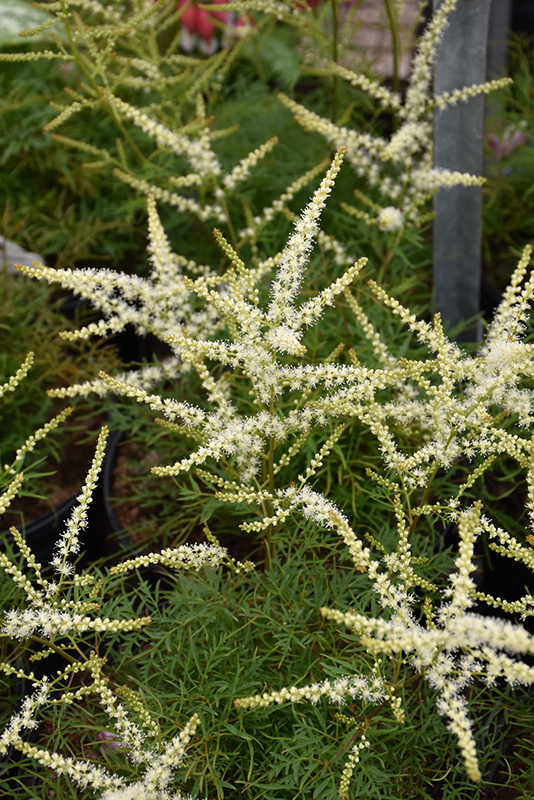Height: 24 inches
Spread: 24 inches
Sunlight:
![]()
![]()
![]()
Hardiness Zone: 3b
Other Names: Goat's Beard
Brand: Walters Garden
Description:
An upright, shrub-like selection that features sprays of creamy white flower plumes that rise above green, ferny foliage in the late spring; prefers partly sunny areas; perfect for borders, containers or garden beds; great cut flower quality
Ornamental Features
Fairy Hair Goatsbeard features showy panicles of creamy white flowers held atop the stems from late spring to early summer. The flowers are excellent for cutting. Its attractive serrated ferny compound leaves remain forest green in color throughout the season. The brown fruits are carried on showy plumes displayed in abundance from mid summer to mid fall. The gold stems can be quite attractive.
Landscape Attributes
Fairy Hair Goatsbeard is a dense herbaceous perennial with an upright spreading habit of growth. Its medium texture blends into the garden, but can always be balanced by a couple of finer or coarser plants for an effective composition.
This is a relatively low maintenance plant, and is best cleaned up in early spring before it resumes active growth for the season. Deer don't particularly care for this plant and will usually leave it alone in favor of tastier treats. It has no significant negative characteristics.
Fairy Hair Goatsbeard is recommended for the following landscape applications;
- Mass Planting
- Hedges/Screening
- General Garden Use
- Groundcover
- Naturalizing And Woodland Gardens
Planting & Growing
Fairy Hair Goatsbeard will grow to be about 20 inches tall at maturity, with a spread of 24 inches. It grows at a medium rate, and under ideal conditions can be expected to live for approximately 15 years. As an herbaceous perennial, this plant will usually die back to the crown each winter, and will regrow from the base each spring. Be careful not to disturb the crown in late winter when it may not be readily seen!
This plant performs well in both full sun and full shade. It prefers to grow in average to moist conditions, and shouldn't be allowed to dry out. This plant should not require much in the way of fertilizing once established, although it may appreciate a shot of general-purpose fertilizer from time to time early in the growing season. It is not particular as to soil type or pH. It is somewhat tolerant of urban pollution. Consider applying a thick mulch around the root zone over the growing season to conserve soil moisture. This particular variety is an interspecific hybrid.

